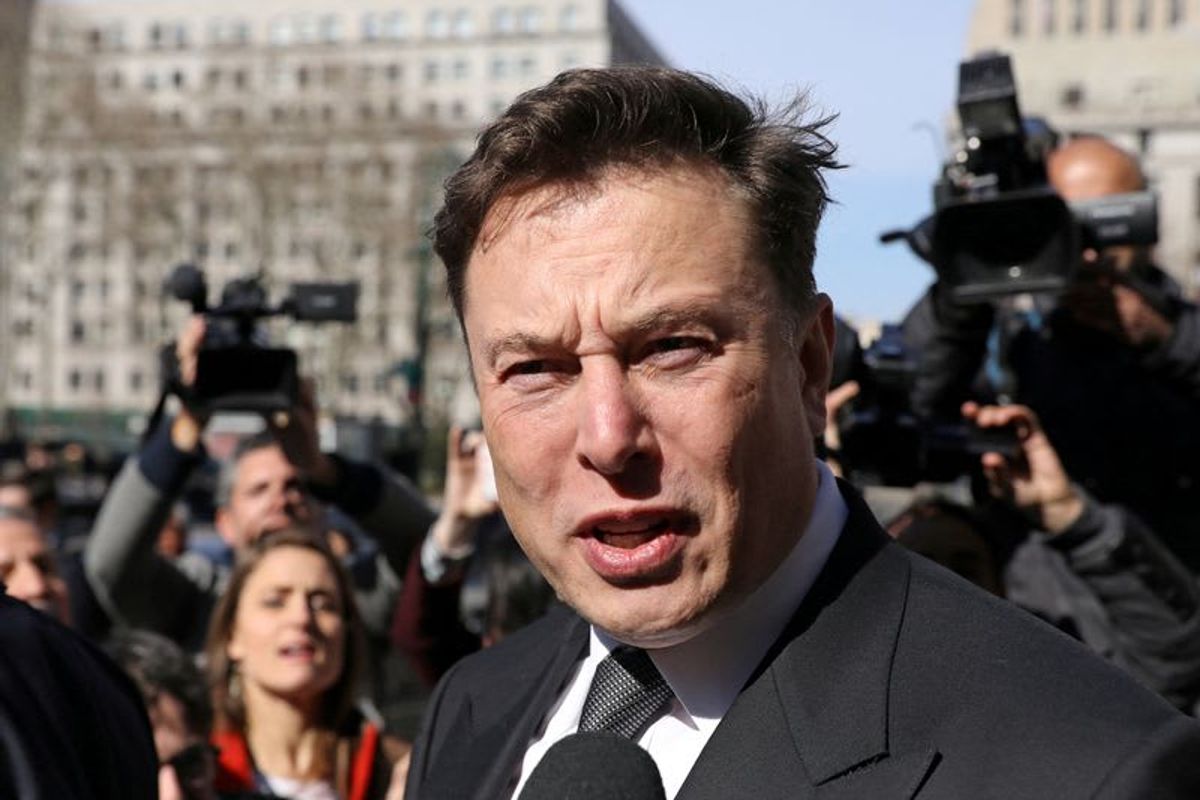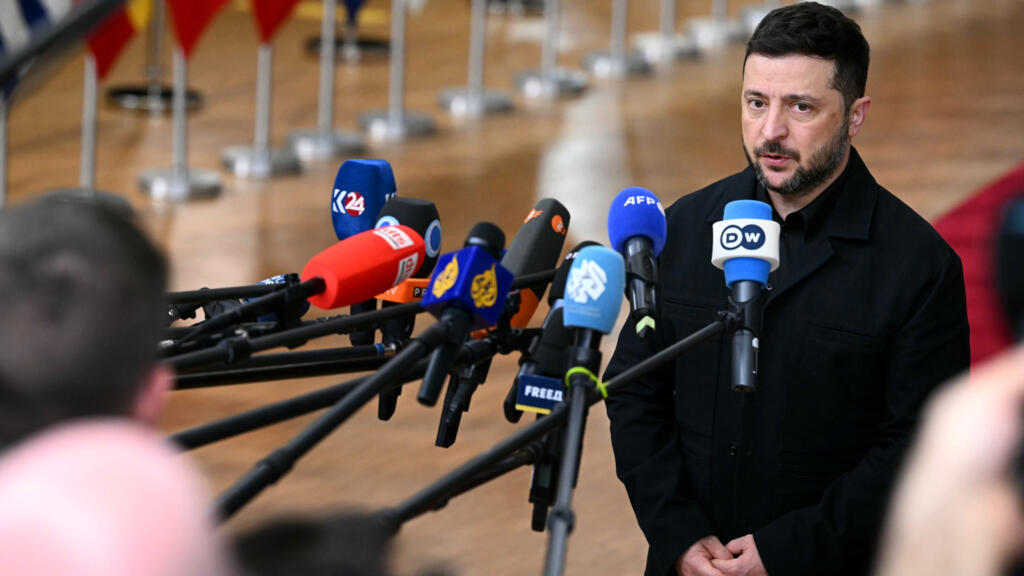ARTICLE AD BOX

The labour dispute between Tesla and its repair workshop mechanics that originated in Sweden on October 27 has escalated to include Denmark, Finland and Norway. As the stakes rise, Elon Musk's electric vehicle manufacturer continues to resist signing a collective agreement with its Swedish employees.
Tesla majority-shareholder and CEO Elon Musk faces growing resistance in Scandinavia's social democracies after refusing to sign a collective agreement determining the minimum wage of his employees.
The dispute, which initially involved only 130 mechanics at ten Tesla repair workshops across seven Swedish cities, has ballooned into an international strike movement.
"The mistake [American multinational] Tesla made was challenging the collective agreements that set sector-specific minimum wages in Sweden, a country where 70% of the population is unionised, compared with only 8% of private sector workers in France," says Yohann Aucante, a political scientist and Scandinavia specialist at the School for Advanced Studies in the Social Sciences (EHESS) in Paris.
Concerned about safeguarding collective agreements, which cover nearly 90% of all employees in Sweden, 15 Swedish unions have joined the strike at the request of the powerful IF Metall union since it kicked off on October 27.
Transporters are refusing to deliver vehicles while electricians are declining to repair charging stations. Cleaning staff have stopped cleaning showrooms, garbage is piling up outside Tesla centres as refuse collectors refuse to pick it up, and the Swedish postal service has stopped delivering license plates essential for registering new Teslas.
On the retail end of the supply chain, car dealerships have stopped offering Teslas and Stockholm taxis have suspended their Tesla purchases.
Neighbors join fight
Far from stopping in Sweden, the "sympathy strike" has spread to the country’s Nordic cousins who also see Tesla’s ambitions as threatening their labour models.
"There are also strong collective agreements and unions in Norway, especially in Denmark, where these agreements determine the majority of labour law,” says Aucante. “Therefore, Norwegians and Danes are keen on this model which gives unions some negotiating power against employers."
After Denmark's largest union, 3F, declared a solidarity strike with Swedish workers on December 5, Norway's largest private sector union warned on December 6 that it would block the transit of Tesla cars to Sweden if the American automaker did not reach an agreement with its Swedish workers by December 20.
The following day, the Finnish transport workers' union AKT offered the same pledge. "It is a crucial part of the Nordic labour market model that we have collective agreements and unions support each other,” AKT president Ismo Kokko said in a statement.
International sympathy strikes are rare, but not unprecedented says Aucante. The last major mobilisation dates back to 1995 when the American toy company Toys "R" Us tried to bypass unions and impose its own salary rules. The retailer eventually yielded after three months of strikes in Sweden and Europe.
Musk outraged
The revolt has provoked outrage from Musk who described the industrial action as “insane" on his social network, X, on November 23.
In response, Tesla filed a request to compel the Swedish postal operator to deliver the license plates and sought compensation for a loss of over €87,000. However, its prosecution request was rejected on December 7 by a Swedish court.
The carmaker is now actively seeking a government affairs specialist in Sweden to help resolve the issue. A job listing posted recently on the Tesla careers website shows the company is looking for someone with a “proven track record of getting regulatory changes made in the Nordics”.
Nordic investors ‘deeply concerned’
Another, more serious threat to Musk is a group of powerful pension funds in the region which have begun criticising Tesla’s conduct.
A group of Nordic investors, which include Norway's largest pension fund KLP, Sweden's Folksam and Denmark's PFA, defended the Swedish labour market model in a letter sent to Tesla on Thursday, saying they are “deeply concerned” about the situation.
“We as Nordic investors acknowledge the decade-old tradition of collective bargaining, and therefore urge Tesla to reconsider your current approach to unions,” the letter reads.
The investor letter also asks for a meeting with Tesla’s board in early 2024 to discuss the matter.
Some funds, acting individually, have gone further in their critique. Kiran Aziz, head of responsible investments at KLP, which holds around €195 million in Tesla shares, said it’s not “just about the labour model in the Nordic but about fundamental human rights".
In Denmark, the pension fund PensionDanmark has decided it’s already seen enough. It sold its 476 million Danish crowns (€64 million) in Tesla holdings on December 7.
The Norges Bank Investment Bank (NBIM), which operates the Norwegian sovereign wealth fund and is the seventh-largest Tesla shareholder with a stake of around €6.3 billion, did not sign on to the letter. However, it declared last week that it would continue to pressure the company to respect labour rights, such as collective bargaining.
A blow to branding
For Tesla, the stakes are high. "As Scandinavians are the leading consumers of Tesla in Europe, the company has no interest in prolonging a conflict that will severely damage its image," says Aucante, who believes Tesla will have to make concessions.
"With the trend towards greening economies, it's 'bad form' to produce cars in China when building an electric car aimed at reducing carbon impact,” adds Aucante. “That's why Tesla is trying to bring back some of its production to Europe, but labour costs are not the same, and there are more regulations here."
While the strike currently affects only northern European countries, there is speculation it could inspire the 11,000 employees at Tesla's largest European operation, the Gigafactory Berlin-Brandenburg.
German employees secured a 4% salary increase in early November as a result of pressure from German unions – a concession which could be linked to the fear of the strike in Nordic countries migrating south, according to the Washington Post.
Across the Atlantic, Tesla workers have yet to unionize. However, after the United Auto Workers (UAW) successfully negotiated deals with Ford, General Motors and Stellantis in November, Tesla is likely worried about unions back home, too.
This article was translated from the original in French.
.png)
 1 year ago
35
1 year ago
35








 English (US)
English (US)